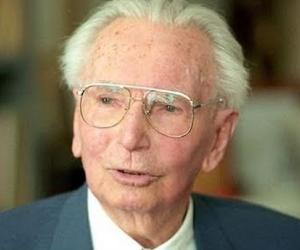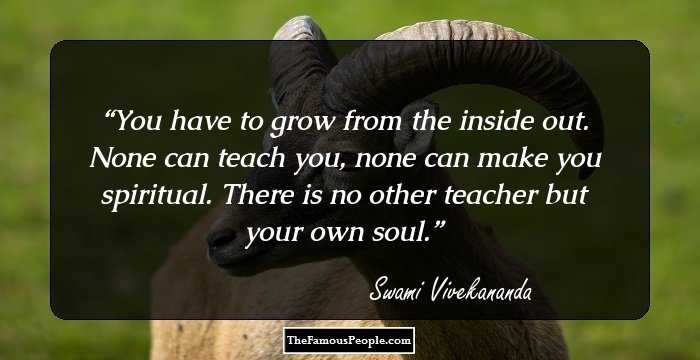
I do the unpleasant tasks before I do the pleasant ones.
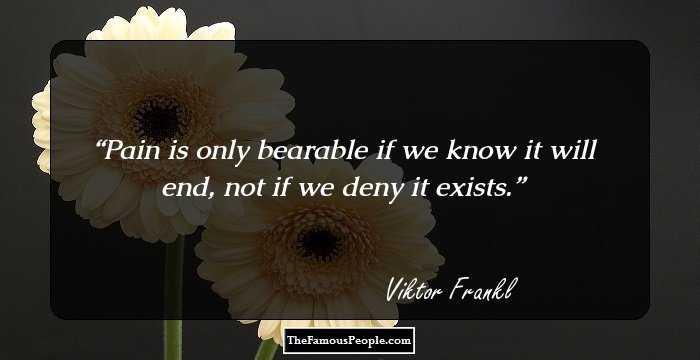
Pain is only bearable if we know it will end, not if we deny it exists.
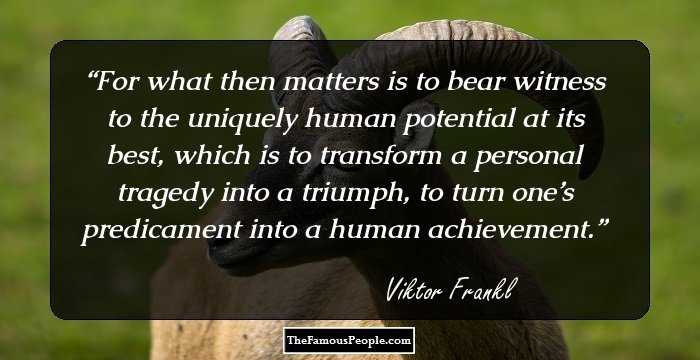
For what then matters is to bear witness to the uniquely human potential at its best, which is to transform a personal tragedy into a triumph, to turn one’s predicament into a human achievement.
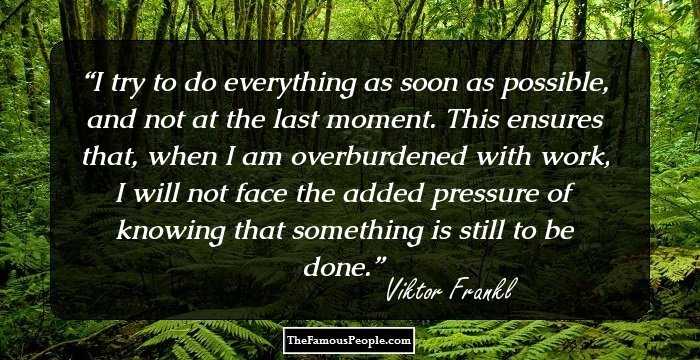
I try to do everything as soon as possible, and not at the last moment. This ensures that, when I am overburdened with work, I will not face the added pressure of knowing that something is still to be done.
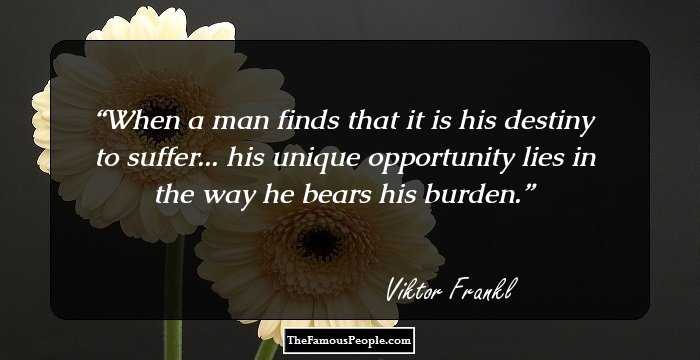
When a man finds that it is his destiny to suffer... his unique opportunity lies in the way he bears his burden.
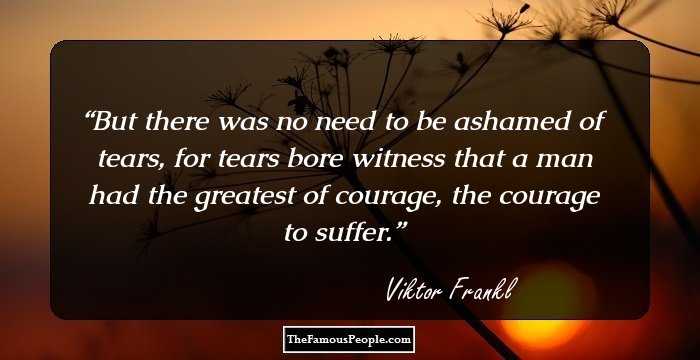
But there was no need to be ashamed of tears, for tears bore witness that a man had the greatest of courage, the courage to suffer.
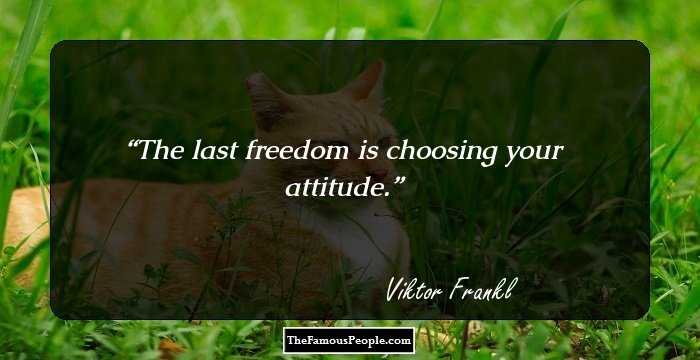
The last freedom is choosing your attitude.

Man's inner strength may raise him above his outward fate.
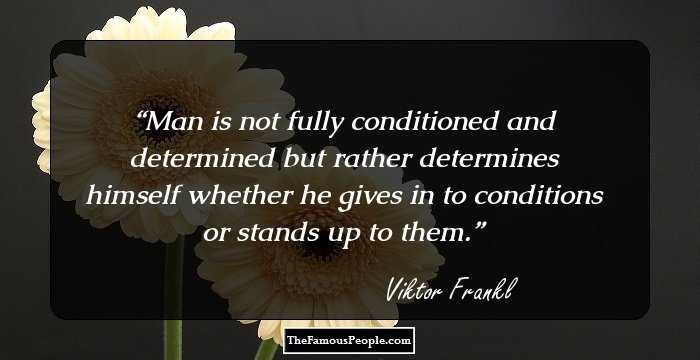
Man is not fully conditioned and determined but rather determines himself whether he gives in to conditions or stands up to them.
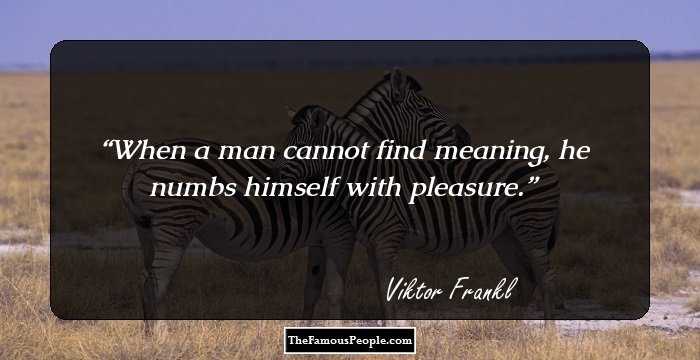
When a man cannot find meaning, he numbs himself with pleasure.
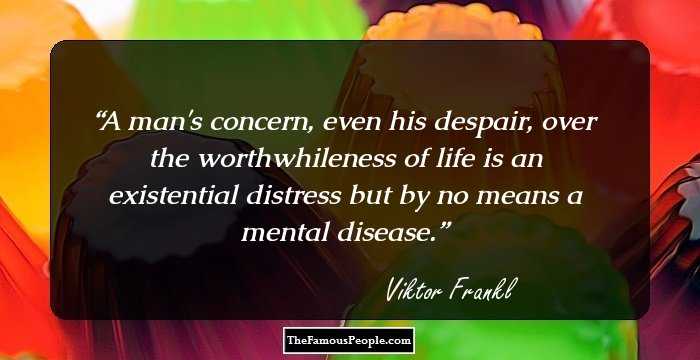
A man's concern, even his despair, over the worthwhileness of life is an existential distress but by no means a mental disease.
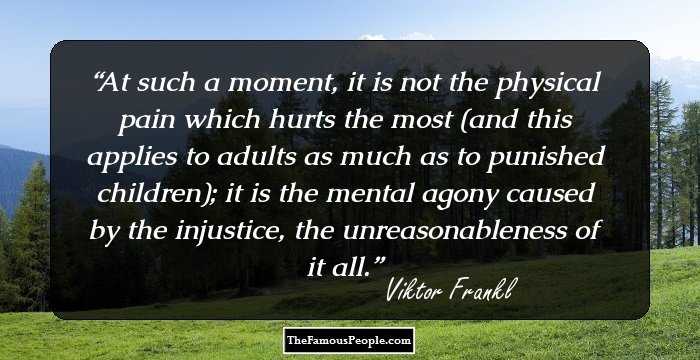
At such a moment, it is not the physical pain which hurts the most (and this applies to adults as much as to punished children); it is the mental agony caused by the injustice, the unreasonableness of it all.
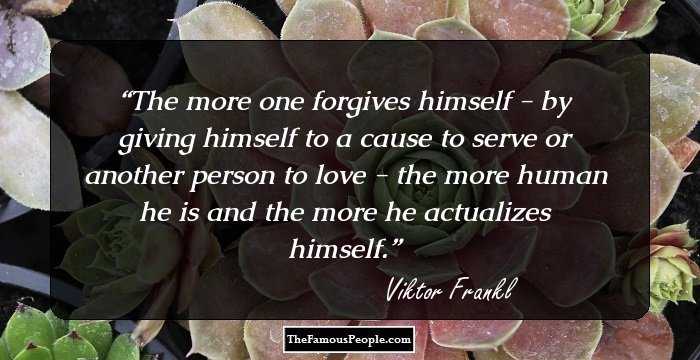
The more one forgives himself - by giving himself to a cause to serve or another person to love - the more human he is and the more he actualizes himself.
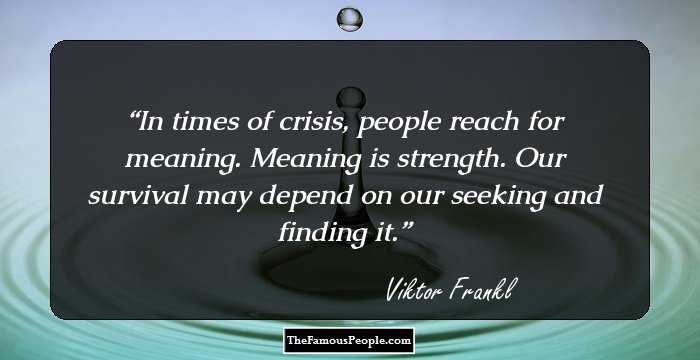
In times of crisis, people reach for meaning. Meaning is strength. Our survival may depend on our seeking and finding it.
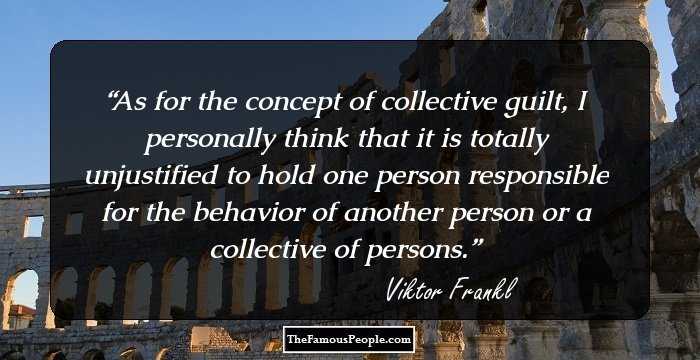
As for the concept of collective guilt, I personally think that it is totally unjustified to hold one person responsible for the behavior of another person or a collective of persons.
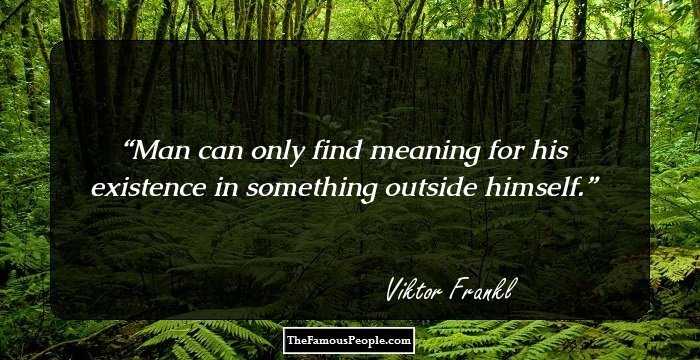
Man can only find meaning for his existence in something outside himself.
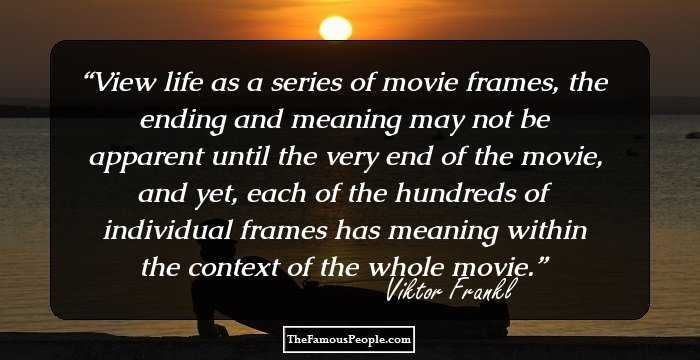
View life as a series of movie frames, the ending and meaning may not be apparent until the very end of the movie, and yet, each of the hundreds of individual frames has meaning within the context of the whole movie.
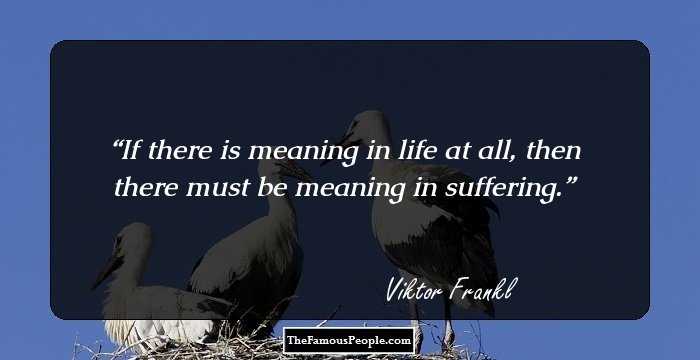
If there is meaning in life at all, then there must be meaning in suffering.

Every human being has the freedom to change at any instant.
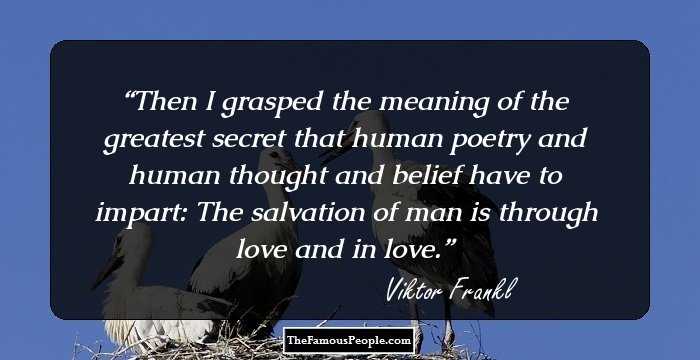
Then I grasped the meaning of the greatest secret that human poetry and human thought and belief have to impart: The salvation of man is through love and in love.

God is the partner of your most intimate soliloquies

Ultimate freedom is a man's right to choose his attitude.
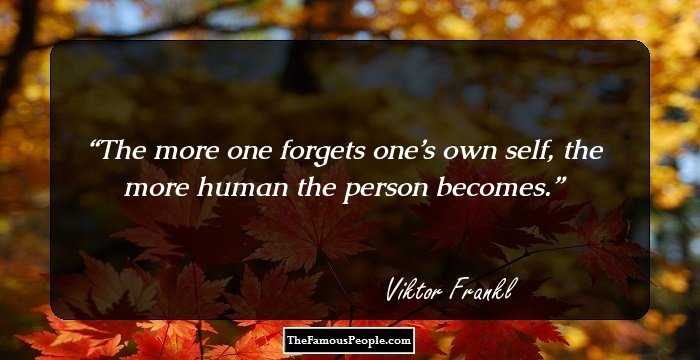
The more one forgets one’s own self, the more human the person becomes.
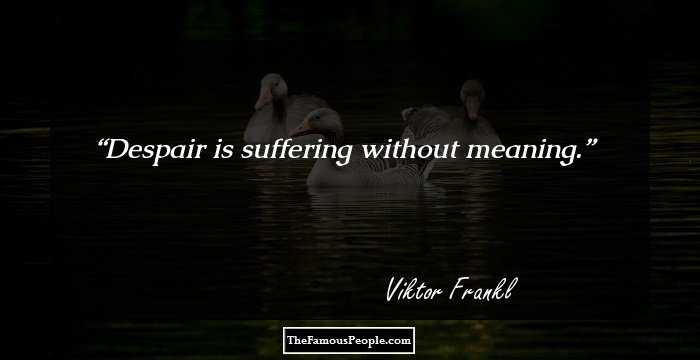
Despair is suffering without meaning.
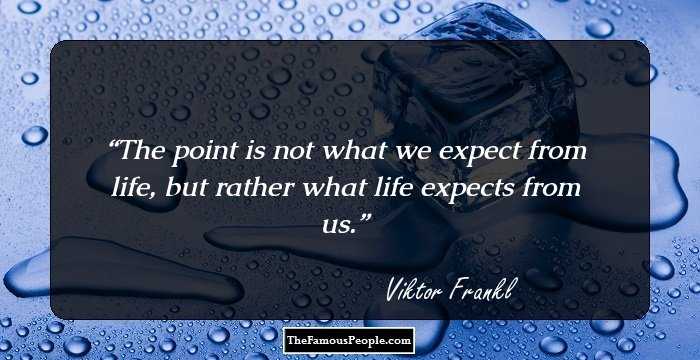
The point is not what we expect from life, but rather what life expects from us.
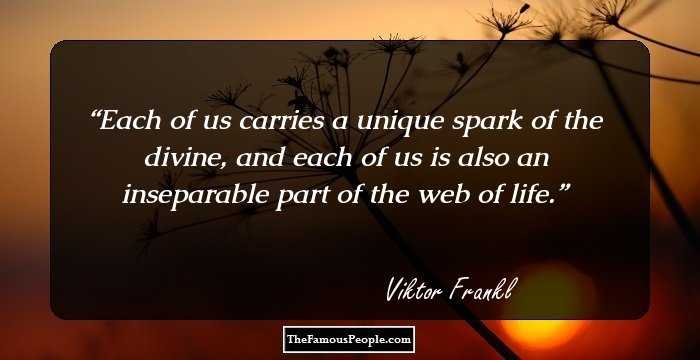
Each of us carries a unique spark of the divine, and each of us is also an inseparable part of the web of life.
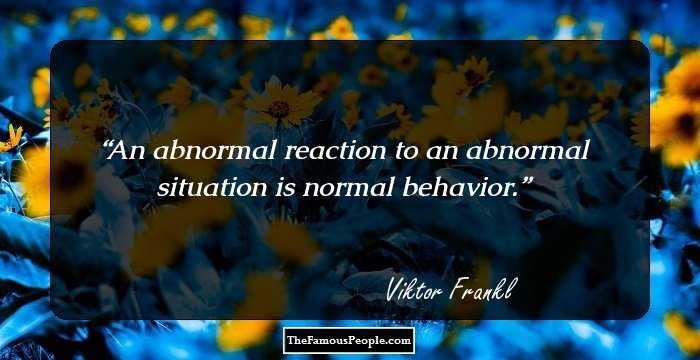
An abnormal reaction to an abnormal situation is normal behavior.
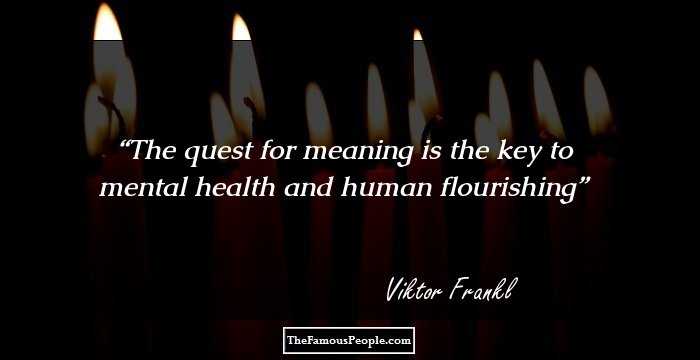
The quest for meaning is the key to mental health and human flourishing
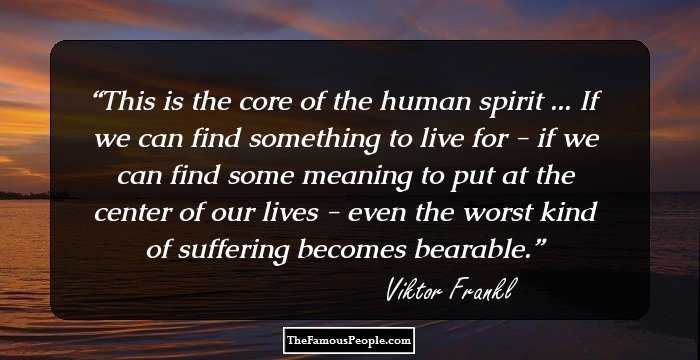
This is the core of the human spirit ... If we can find something to live for - if we can find some meaning to put at the center of our lives - even the worst kind of suffering becomes bearable.
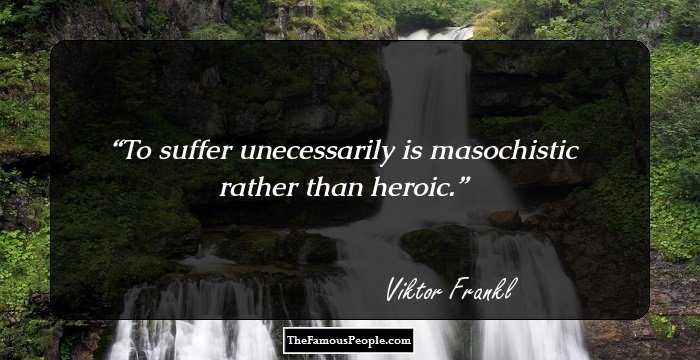
To suffer unecessarily is masochistic rather than heroic.

